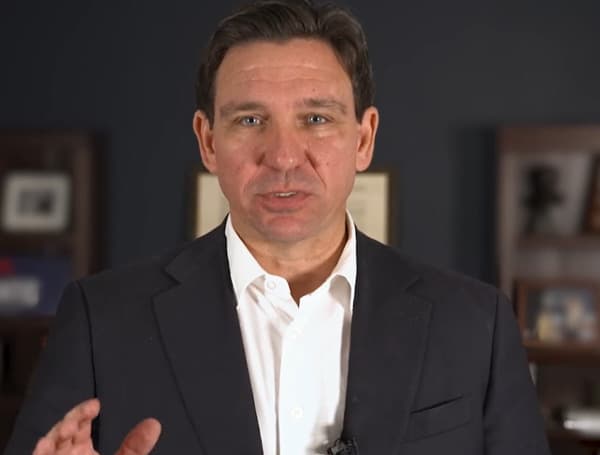Florida Governor Ron DeSantis vetoed CS/SB 62 Tuesday, a bill that aimed to preserve the resident status for tuition purposes of individuals incarcerated in state or federal correctional facilities within the state.
This decision has raised concerns among advocates for educational access and equity, as it could have significant implications for the academic and financial futures of incarcerated students.
The now-vetoed CS/SB 62 was a legislative effort to address a critical issue faced by incarcerated individuals in Florida seeking to pursue higher education. The bill proposed an amendment to Section 1009.21 of the Florida Statutes, which outlines the determination of resident status for tuition purposes.
Read: Florida Gov. DeSantis Signs Bill To Promote ‘Self-Sufficiency,’ Avoid Benefits Cliff
The core objective of CS/SB 62 was to ensure that incarcerated individuals would not lose their resident status for tuition purposes solely due to their incarceration in a state or federal correctional facility within Florida. This provision aimed to maintain the educational opportunities and financial accessibility for these students, who often face significant barriers to accessing higher learning.
Governor DeSantis’ decision to veto CS/SB 62 has raised concerns about the potential impact on incarcerated individuals’ educational prospects.
The bill’s sponsors say that without the protections proposed in the bill, these students may face the prospect of being reclassified as non-residents, resulting in a substantial increase in their tuition costs and potentially limiting their ability to afford and access postsecondary education.
Providing educational opportunities for incarcerated individuals is widely recognized as a crucial component of rehabilitation, reintegration, and reducing recidivism rates. Studies have consistently shown that access to higher education can have a transformative impact on the lives of incarcerated individuals, empowering them with the knowledge, skills, and credentials needed to secure employment and successfully reenter society.
Read: Florida Gov. DeSantis Suspends Hialeah Councilwoman Amid Federal Fraud Indictment
In his veto message, Governor DeSantis said, “Florida’s higher education system has ranked #1 in the country for nearly a decade, in part due to the state’s investment in our institutions over that same period. We should not reward criminal activity by providing inmates with the same benefits as law-abiding citizens.”
The debate surrounding the veto of CS/SB 62 is likely to continue, with both supporters and critics of the bill advocating for their respective positions. As the state navigates these complex issues, it will be crucial for policymakers to carefully consider the long-term implications and engage in constructive dialogue with all stakeholders to find a balanced and equitable solution.
Help support the Tampa Free Press by making any small donation by clicking here.
Android Users, Click To Download The Tampa Free Press App And Never Miss A Story. Follow Us On Facebook and Twitter. Sign up for our free newsletter.

